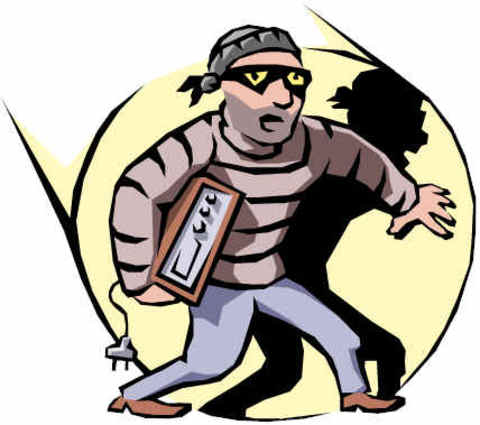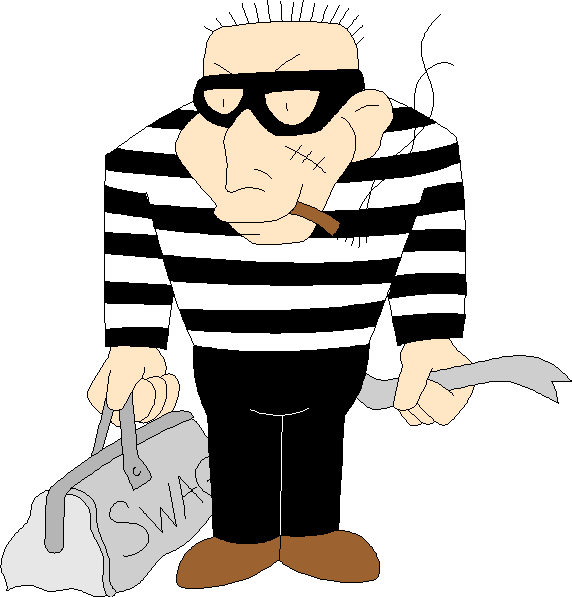
- •Contents
- •I. Lead-in
- •1. Прочитайте вслух слова, обратите внимание на их произношение.
- •2. Подберите с помощью словаря названия правонарушителей, используя глаголы, приведенные в таблице.
- •3. В таблице приведены различные виды преступлений. С помощью словаря дополните таблицу.
- •4. На основе слова “theft” отразите связь между словами.
- •5. Соотнесите английские словосочетания с их русскими вариантами.
- •II. Reading
- •6. Прочитайте и переведите текст. Categories of сrime in Britain
- •7. Выразите согласие/несогласие со следующими утверждениями, используя ту или иную речевую модель.
- •8. Ответьте на вопросы по тексту.
- •4. Прочитайте и переведите текст.
- •II. Reading Criminal procedure
- •5. Работа в парах. Прочитай текст еще раз, найдите словосочетания со словом “evidence”. Переведите их.
- •6. Выразите согласие/несогласие со следующими утверждениями, используя ту или иную речевую модель.
- •7. Ответьте на вопросы по тексту.
- •8. Выберите правильный вариант ответа в соответствии с содержанием текста.
- •8. Работа в парах. Выберите из текста названия участников уголовного процесса. Определите, какова их роль в проведении уголовного процесса.
- •9. Переведите определения выделенных слов.
- •2. Подберите русские соответствия для английских слов и выражений.
- •II. Reading
- •3. Прочитайте и переведите текст. R ussia – Criminal Code
- •4. Переведите и объясните значения данных слов и выражений.
- •5. Найдите в тексте английские эквиваленты.
- •6. Переведите тексты письменно, обращая внимание на перевод выделенных слов и словосочетаний.
- •7. Распределите 9 утверждений, сделанных обвиняемыми. Обсудите в мини группах преступления, в которых обвиняется каждый из обвиняемых. Будьте готовы объяснить выбор преступления.
- •II. Reading
- •5. Прочитайте и переведите текст. History of Punishment
- •6. Найдите в тексте английские эквиваленты.
- •7. Выразите согласие/несогласие со следующими утверждениями, используя ту или иную речевую модель.
- •8. Прочитайте текст и определите тенденцию развития наказания, закончив следующие предложения по тексту.
- •II. Reading
- •4. Ответьте на вопросы.
- •5. Прочитайте и переведите текст. T ypes of punishment
- •Punishment may include:
- •6. Найдите в тексте английские эквиваленты.
- •7. Ответьте на вопросы по тексту.
- •8. Просмотрите текст и озаглавьте каждый абзац, используя следующие цели наказания по степени их важности. Переведите текст.
- •Purposes of punishment
- •9. Замените русские слова в скобках соответствующими формами глаголов.
- •10. Дискуссия - “Capital punishment: For and Against”
- •II. Reading
- •4. Прочитайте и переведите текст. Some Historical Facts
- •5. Выразите согласие/несогласие со следующими утверждениями, используя ту или иную речевую модель.
- •6. Ответьте на вопросы по тексту.
- •I. Lead-in
- •1. Выберите правильный вариант ответа.
- •II. Reading
- •3. Ответьте на вопросы.
- •4. Прочитайте и переведите текст. The British Police
- •5. Определите, справедливы ли данные высказывания. Исправьте неверные утверждения, используя ту или иную речевую модель.
- •6. Ответьте на вопросы по тексту.
- •7. В Англии существуют специальные отделы полиции. Просмотрите текст и озаглавьте каждый абзац. Переведите текст.
- •I. Lead-in
- •2. Соотнесите английские словосочетания с их русскими вариантами.
- •II. Reading
- •3. Прочитайте и переведите текст. Police of the Russian Federation
- •4. Работа в парах. Выразите согласие/несогласие со следующими утверждениями, используя ту или иную речевую модель.
- •5. Ответьте на вопросы к тексту.
- •6. Переведите текст, обращая внимание на перевод выделенныx слов и словосочетаний. Russia – The Criminal Investigation
- •Работа в парах. Восстановите диалог между полицейским и подозреваемым, используя соответствующие выражения. Внесите необходимые изменения.
- •The Suspect
- •3. Кейс – метод (case study)
- •Introducing the talk:
- •Indicating the structure and sequences of your talk:
- •Inviting questions and feedback from the audience:
- •Герундий - это неличная форма глагола, сочетающая свойства глагола и существительного.
- •Список использованной литературы
- •1. Ответьте на вопросы, используя выражения, приведенные ниже:
- •2. Прочитайте и переведите текст со словарем: text 1
- •3. Переведите следующие словосочетания из текста на русский язык:
- •4. Найдите в тексте следующие английские словосочетания:
- •5. Ответьте на вопросы по тексту:
- •6. Соотнесите слова из колонки а с их значениями из колонки в:
- •7. Замените русские выражения в скобках на соответствующие английские эквиваленты из текста:
- •8. Переведите предложения на английский язык, используя слова и словосочетания из текста:
- •9. Самостоятельная работа.
- •Introducing the topic:
- •3. Прочитайте текст и переведите его на русский язык: text 2 differences between civil and criminal procedure
- •Text 3. Civil procedure rules in the uk
- •12. Работа в парах. Обсудите друг с другом сферы деятельности судов различной юрисдикции в Великобритании и представьте результаты обсуждения.
- •1. Прочитайте и переведите текст:
- •2. Подберите определения из колонки (b) к выражениям из колонки (a):
- •3. Ответьте на следующие вопросы:
- •Оборот «именительный падеж с инфинитивом» (сложное подлежащее)
- •1. Переведите предложения на русский язык. Выделите оборот complex subject и подчеркните его. Самостоятельно составьте список глаголов, которые фигурируют в обороте:
- •Ответьте на вопросы:
- •Найдите в тексте соответствия данным словосочетаниям:
- •Заполните пропуски в следующих предложениях:
- •3. Подберите к английским словам и выражениям (колонка а) соответствующие слова и выражения (колонка б):
- •4. Составьте словосочетания из приведенных ниже существительных и прилагательных:
- •5. Используйте словосочетания из упражнения 3 для того, чтобы закончить предложения:
- •6. Cоставьте предложения на английском языке, используя приведенные ниже словосочетания:
- •7. Ответьте на вопросы по тексту:
- •8. Прочитайте текст Types of torts и подберите соответствующий деликт к приведенным выше описаниям:
- •9. Ответьте на вопросы:
- •10. Прочитайте текст:
- •11. Опираясь на текст, составьте предложения из слов, приведенных ниже:
- •12. С помощью словаря найдите как можно больше значений слов, приведенных ниже. Придумайте по два предложения с разными значениями одного и того же слова.
- •13. Прочитайте и переведите текст:
- •4. Ответьте на вопросы:
- •5. Прочитайте текст:
- •6. Объясните термин - frivolous lawsuit
- •7. Определите, справедливы ли данные высказывания или нет. Исправьте неверные утверждения:
- •8. Просмотрите следующие образцы гражданских исков в гражданский суд в сша и образец иска в Арбитражный суд рф.
- •In the circuit court for baltimore city, maryland
- •Complaint
- •Count I - Strict Liability-Defect in Design - Product Liability
- •Count II - Negligent Design and/or Maintenance - Product Liability
- •Count III - Strict Liability-Abnormally Dangerous Activity - Products Liability
- •Complaint and prayer for jury trial
- •Preamble
- •Statement of facts
- •Count one
- •9. Самостоятельно заполните форму иска в Арбитражный суд рф и передайте его содержание на английском языке.
- •10. Ролевая игра
- •Is a village or town responsible for their parks?
Министерство образования и науки Российской Федерации
Государственное образовательное учреждение
высшего профессионального образования
«Московская государственная юридическая академия им. О.Е. Кутафина»
________________________________________________________
КАФЕДРА АНГЛИЙСКОГО ЯЗЫКА № 2
АНГЛИЙСКИЙ ЯЗЫК
ДЛЯ ЮРИСТОВ–БАКАЛАВРОВ
учебно-методическое пособие
для студентов 1 курса
(Модуль 5)
Москва 2012 г.
Настоящее учебно-методическое пособие представляет собой пятый модуль учебного плана обучения студентов-бакалавров на первом курсе по дисциплине “Иностранный язык в сфере юриспруденции” и является частью Рабочей программы.
Модуль включает в себя две темы.
Преступление и наказание.
Органы правопорядка.
Модуль рассчитан на 14 часов аудиторной работы и 4 часа самостоятельной работы для студентов очной формы обучения.
Пособие разработано в соответствии с Рабочей программой по дисциплине и ФГОС ВПО нового поколения.
Разработчики - преподаватели кафедры английского языка № 2 МГЮА им. О. Е. Кутафина
доцент Залогина Т.В., ст. преподаватель Година А.А., ст. преподаватель Миненко О.А, ст. преподаватель Ткачева Е.П., ст. преподаватель Богачева А.В., ст. преподаватель Ковригина О.С.
Contents
PART 8. CRIME AND PUNISHMENT – POLICE
CRIME AND PUNISHMENT
Unit 1. Crime 4
Unit 2. Categories of crime in Britain 5
Unit 3. Criminal Procedure 8
Unit 4. Russia – Criminal Code 11
Unit 5. History of punishment 15
Unit 6. Types of punishment 17
POLICE
Unit 1. Some historical facts 22
Unit 2. British police 24
Unit 3. Police of the Russian Federation 27
Unit 4. Communication skills 30
Краткий грамматический справочник 34
Словарь по теме “Преступление и наказание – полиция” 37
Список использованной литературы 40
PART 9. Civil Offences, Torts. Civil Procedure
Unit 1. Civil Code of the Russian Federation 41
Unit 2. Civil Procedure in the UK 46
Unit 3. Civil Procedure in the USA 54
Unit 4. Civil Offences, Torts 56
Unit 5. Remedies in the Civil Court of Law 63
PART 8
CRIME
Unit 1
I. Lead-in
1. Посмотрите на рисунки. Опишите, что изображено на них. Как Вы думаете, каким образом они связаны с понятием “преступление-наказание-полиция”.




2. Прочитайте возможные определения понятия “преступление”. Дайте свое определение.
1. An act or the commission of an act that is forbidden by law.
2. Offence for which is severe punishment by law.
3. Illegal activity in general.
4. A bad, immoral or dishonourable act.
3. Ответьте на вопросы.
1. Do you think that the problem of criminality is urgent in our country?
2. What are the causes of crime? Think about the following:
- drinking too much can lead to a crime
- television provokes crimes
- low cultural education
- most crime are drug-related
3. Name as many crimes as you can.
4. Прочитайте вслух слова, обратите внимание на их произношение.
authority, ultimately, violation, unauthorized, associate, explosively, offence, society, indictable, fraud.
II. Reading
5. Прочитайте и переведите текст. Ответьте на вопросы.
1. Is every violation of law a crime?
2. What makes the criminal law develop so fast?
3. Do different societies define crimes in the same way?
Crime
Crime is the breach of rules or laws for which some governing authority can ultimately prescribe a punishment. Individual human societies may define crimes differently. Modern societies generally regard crimes as offences against the public or the state. The word ‘crime’ is generally associated with wrongdoing but not very type of wrongdoing is a crime. Telling lies is immoral wrong but if telling lies is put into practice resulting in physical harm to another, then such action becomes both criminal and immoral.
There are some acts which are crimes in one country but not in another. For example, it is crime to have more than one wife at the same time in France, but not in Indonesia. There is quite a lot of agreements among states as to which acts are criminal. But such act as stealing, physical attack or damaging one’s property will be unlawful in all countries and the way of dealing with people suspected of crime may be different. Sometimes government “creates” new crimes by identifying a form of behavior and passing a new law to deal with it. Different societies or governments often review their ideas of what should and shouldn’t be a crime. For example, discrimination against someone on the ground of race or sex was not considered to be a crime until relatively recently.
Technical change is a reason why the criminal law is one of the growing areas of the law. Over the past few years, the Internet has grown explosively and the new crimes are appeared such as unauthorized access or “hacking”, fraud, drug trafficking and others. And the new laws have been passed.
Most crimes are not reported, not recorded, not followed through, or not able to be proved. When informal relationships and sanctions are insufficient to establish and maintain a desired social order, a government or a state may impose more strict systems of social control.
6. Работа в парах. Прочитайте текст еще раз и выделите факторы возникновения преступлений.
Unit 2
